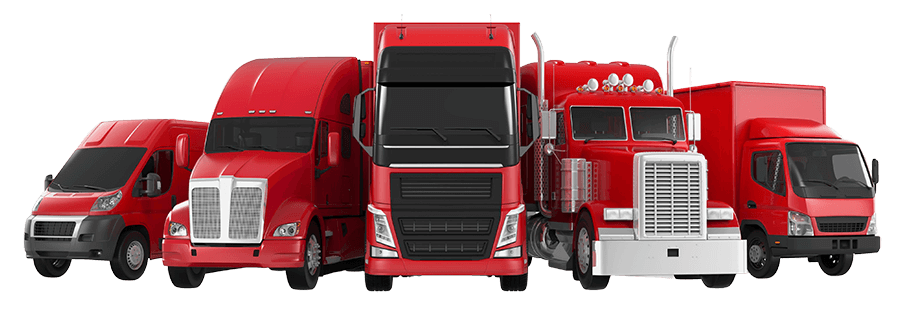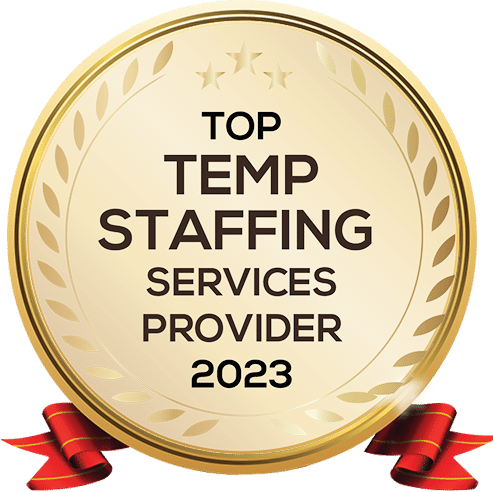
Regional Supplemental ServicesOn-Demand Reliable Workforce

Choose RSS to fill your temporary CDL driver positions
You are no longer burdened with the heavy task of finding reliable and professional CDL and non-CDL drivers. Our experienced network of dependable drivers successfully works with private fleets, third-party logistics businesses, for-hire carriers, and LTL carriers around the country. Best CDL temp agency for over 20 years.
With RSS at your side, you will never have to worry about:
 Delivery loads left at the dock
Delivery loads left at the dock Temp agencies not providing what they promised
Temp agencies not providing what they promised Loads shipping tomorrow that could have shipped today
Loads shipping tomorrow that could have shipped today
 The dried-up labor pool
The dried-up labor pool Drivers showing up one day and not the next
Drivers showing up one day and not the next Top Rated CDL Temp Agency
Top Rated CDL Temp Agency Various additional CDL Driver positions
Various additional CDL Driver positions

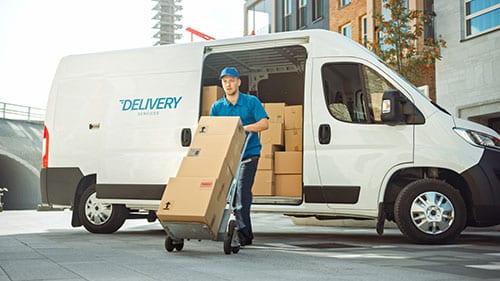
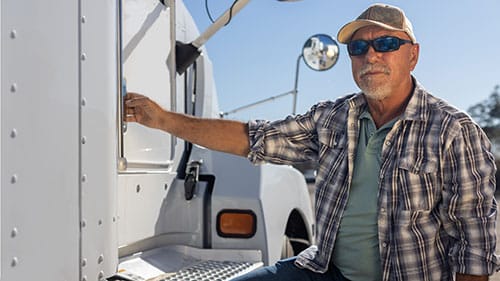
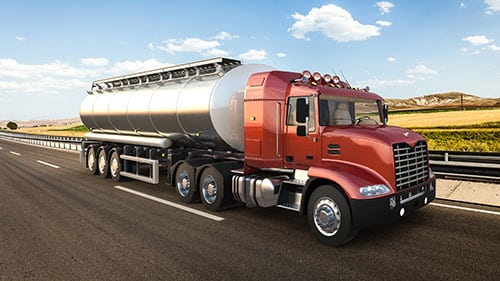
DRIVERS FOR
Food and Beverage Trucks
We have ready to deploy proven workers that have been in our network for years, so you can be confident that you’re getting the most qualified and experienced workers available.
DRIVERS FOR
Hazmat Trucks
Receive qualified workers on demand so you can rest assured that your business will remain up and running even when faced with unexpected staffing challenges.
DRIVERS FOR
Trailers with 2 or 3 axles
Whether you need to fill a short-term vacancy or you’re looking for a more flexible workforce, we can help you find the right solution to support your business.
DRIVERS FOR
Direct Store Delivery (DSD) Trucks
Avoid the cost of benefits such as health insurance, sick pay, vacation pay, worker's comp, and retirement plans. We handle that plus administrative tasks, including payroll and taxes.
DRIVERS FOR
Tanker Trucks
Save on labor and training costs. Reduce your number of full-time employees. With our extensive workforce, you can scale up or down as needed.
DRIVERS FOR
Drivers for Class B & Non-CDL Vehicles
Properly trained and ready to go, with 30 years’ experience, we know how to streamline the onboarding process to ensure that workers are suitably placed and ready to work.
RSS delivers truck drivers based on truck specialty
RSS provides experienced and reliable CDL and non-CDL drivers. You can now utilize the same drivers every day to improve familiarity and continuity with your unique routes and protocols.
Client Testimonials
Frequently Asked Questions
My delivery deadlines are paramount. Are RSS drivers reliable?
RSS drivers are reliable, professional, and follow all safety protocols. You are no longer burdened with the heavy task of finding reliable and professional CDL and non-CDL drivers. Our experienced network of dependable drivers successfully works with private fleets, third-party logistics businesses, for-hire carriers, and LTL carriers around the country.
Does RSS have CDL drivers?
RSS Staffing Inc. is the leading CDL driver staffing and placement agency in all 50 states. Our professional staff’s expertise lies in recruiting qualified drivers for your commercial trucking needs from our extensive network of candidates that meet FMCSA standards which means you can rest assured knowing we will get what it takes to be safe on roads.
What does the FMCSA stand for?
What is the FMCSA responsible for?
How do I find qualified temporary CDL and non-CDL drivers? Why is it hard to recruit truck drivers?
Truck drivers are essential for transporting goods and materials across the United States. However, companies are currently facing a severe driver shortage.
According to the American Transportation Research Institute (ATRI), while retention remains a general concern, retirements are the main reason for the deepening worker shortage. Because of an aging workforce, the number of truck drivers facing retirement age continues to climb at a time when interest in the profession has waned. The ATRI estimates that the industry will need to add almost 100,000 drivers by 2025 to meet demand.
The pandemic has exacerbated this shortage, as some drivers have stopped driving due to health concerns. The ongoing global supply chain issues have also made it difficult to find drivers. As a result, many companies are looking for new and innovative ways to recruit drivers. One solution is to hire a staffing agency specializing in finding temporary qualified truck drivers. Companies can access a larger pool of potential candidates by working with a staffing agency and finding drivers that meet their specific needs. In addition, staffing agencies provide support throughout the process and handle all the paperwork, including background checks, licensing, salary, and benefits.
Finding dependable drivers can be a daunting task. At RSS, we understand the importance of having qualified and reliable drivers. That’s why we only employ the best candidates to provide our clients with the flexibility and reliability they need. We excel in reducing risks and liabilities for our clients while creating a predictable cost-per-driver. Whether you’re looking for short-term or long-term staffing solutions, we’re here to help.
What are the different types of CDL (Commercial Driver’s License)?
There are 3 types of CDL: Class A, Class B, and Class C.
Class A is the more inclusive CDL, allowing for the operation of vehicles such as tractor trailers, tankers, livestock carriers, and flatbeds. Class A is for drivers who operate vehicles with a gross vehicle weight rating (GVWR) of 26,001 pounds or more. A class A CDL with the correct endorsements should allow the driver to operate many commercial motor vehicles, including class B and class C trucks.
Class B is for drivers who operate vehicles with a GVWR of 26,001 pounds or more but aren’t towing trailers. With the correct endorsements, a Class B CDL can allow for the operation of vehicles including tourist buses, box trucks, garbage trucks, dump trucks, and delivery trucks. Class B drivers can also operate Class C vehicles with the right endorsements.
Class C is for drivers who operate any single vehicle or combination of vehicles that are not classified Class A or Class B vehicles, but either is meant to transport 16 or more passengers, (including the driver). It also includes operating vehicles used in the transportation of materials classified as hazardous.
What CDL makes the most money?
Where are truck drivers paid the most?
According to a study by Seek Business Capital, the ten best states for truck driver salaries (which take the state’s cost of living into account) are in order: Nevada, Mississippi, Kentucky, Utah, South Carolina, Arizona, New Mexico, Indiana, Idaho, and Montana.
Are truck drivers still in demand?
According to the Bureau of Labor Statistics, employment of heavy and tractor-trailer truck drivers is projected to grow 6 percent from 2020 to 2030, about as fast as the average for all occupations.
What does CDL stand for?
CDL stands for Commercial Driver’s License. In order to drive a commercial motor vehicle in the United States, the driver must hold a valid Commercial Driver’s License, or “CDL”. Like a regular (Class D), non-commercial driver license, CDL’s are issued by the state where the driver lives.
Driving a commercial motor vehicle requires more than just the average driver’s license. The Commercial Driver’s License, or “CDL,” is an essential credential for any US citizen operating these larger vehicles. Issued at state level like regular (Class D) licenses, acquiring and renewing a CDL are steps nobody should overlook when planning to operate large-scale machines on public roads!
What's the easiest CDL to get?
If you’re looking to obtain a CDL, these areas offer some of the easiest certifications. Florida, Georgia, Alabama, Kentucky Tennessee Mississippi Indiana, and South Carolina.
Is a CDL worth it?
With unemployment at an all-time high, furthering your career could be a great move – especially if it’s to the world of professional driving! With CDL jobs in abundance and reliable job security on offer, investing time into this vocation is certain to pay off. So why not make the leap today?
7 Benefits of Becoming a Truck Driver (CDL Driver)
Becoming a commercial driver’s license (CDL) holder offers a wide range of benefits for those who are looking for a stable, well-paying job with opportunities for growth and advancement. Some of the key benefits of becoming a CDL driver include:
- High Demand: The demand for CDL drivers is consistently high, as goods and products need to be transported across the country every day. This means that CDL drivers are always in high demand, regardless of economic conditions.
- Good Pay: CDL drivers typically earn above-average salaries. According to the Bureau of Labor Statistics, the median annual salary for a heavy and tractor-trailer truck driver is around $43,680. Additionally, many trucking companies offer bonuses and incentives for safe driving and on-time delivery.
- Flexible Schedule: Many trucking companies offer flexible scheduling options, which allows drivers to choose when they work and how often they work. This makes it possible for drivers to balance their work and personal lives in a way that works best for them.
- Variety of Opportunities: CDL drivers have the opportunity to work in a variety of settings, such as long-haul trucking, regional trucking, or local delivery. This allows drivers to find a job that best suits their preferences and lifestyle.
- Room for Advancement: Many trucking companies offer training and development opportunities for their drivers, which can lead to promotions and higher-paying positions. Additionally, many trucking companies also offer tuition reimbursement for drivers who want to continue their education.
- Independence: Being a truck driver allows for a great deal of autonomy and independence. Drivers get to spend a lot of time on the road, with the freedom to plan their own routes and schedule.
- Health Benefits: Long hours on the road and being seated for extended periods can be tough on the body, but many trucking companies offer health insurance, retirement benefits, and other perks to help their drivers stay healthy and secure.
In conclusion, becoming a CDL driver offers a wide range of benefits for those looking for a stable, well-paying job with opportunities for growth and advancement. With high demand, good pay, flexible schedules, variety of opportunities, room for advancement, independence and health benefits, becoming a CDL driver can be a great career choice for those who are willing to work hard and meet the qualifications.
What are the requirements for Obtaining a CDL?
Age Requirement: Prospective CDL holders must be at least 18 years old for intrastate driving (within the same state) and at least 21 years old for interstate driving (across state lines) and to transport hazardous materials.
Valid Driver’s License: Applicants must possess a valid non-commercial driver’s license from their state of residence.
Medical Examination: CDL applicants must pass a Department of Transportation (DOT) medical examination conducted by a certified medical examiner. The exam assesses physical fitness, vision, hearing, and overall health to ensure the driver can safely operate commercial vehicles.
Residency: Applicants must be residents of the state where they are applying for the CDL.
Clean Driving Record: CDL holders must have a clean driving record to get a CDL and maintain a clean driving record to keep their licenses in good standing. Repeated traffic violations, DUI convictions, or other serious infractions can lead to the suspension or revocation of a CDL.
Completed Entry-Level Driver Training: According to the FMCSA, drivers applying for a Class A or Class B CDL for the first time after February 7, 2022 must complete entry-level driver training with a registered training provider prior to testing.
What are the steps to obtaining a CDL?
The first step of getting a CDL is to get a copy of your state’s CDL manual because each state has its processes for obtaining a CDL you need to follow.
The second step is to get your commercial learner’s permit (CLP). A CLP authorizes you to practice on public roads with a qualified CDL holder beside you. Also, most types of commercial driving require a DOT medical card, requiring a DOT physical to ensure you are medically capable of driving a commercial vehicle. To get a permit you must pass a written knowledge test covering topics such as road safety, vehicle operation, and state-specific regulations.
Step three is to complete entry-level driver training with a registered training provider before you take your Skills Test. Some states may have additional requirements above and beyond what the Federal Motor Carrier Safety Administration requires.
The final step is to get the CDL by passing all three parts of the Skills Test: the Vehicle Inspection Test, the Basic Controls Test, and the Road Test. Once you have passed the Skills Test, and paid all fees, some states will give you the CDL that same day, while others will send it to you in the mail.
What is the highest level of CDL?
CDL truck drivers are classified based on their level of experience and qualifications. The highest level is a Class A Commercial Driver’s License (CDL). This license indicates the most comprehensive knowledge and advanced skills necessary to operate the largest and heaviest vehicles, including tractor-trailers, buses, tankers, livestock carriers, flatbeds, doubles/triples, and other large commercial motor vehicles. Obtaining a Class A CDL requires a significant commitment in time and effort. Still, it provides rewards beyond what other levels of CDLs can offer – increased job opportunities with higher income potential.
To obtain a Class A license, an individual must pass a written test and a driving test that requires operating such vehicles in real traffic situations. In addition to passing the driving test, truck drivers with a Class A CDL must also demonstrate proficiency in vehicle inspections and general safety rules while carrying hazardous materials. Lastly, Class A CDL truck drivers must also pass a medical examination to show that they are medically qualified to operate Class A vehicles safely.
Obtain Endorsements (if necessary): Some specialized driving jobs may require additional endorsements, such as the HAZMAT endorsement for transporting hazardous materials or the passenger endorsement for driving buses. Each endorsement typically requires passing a separate knowledge test and, in some cases, a skills test.
Can my CDL transfer to another state?
When you move to another state, you must transfer your Commercial Driver’s License (CDL) to your new state of residence. It generally involves a straightforward process; however, you must follow specific steps and requirements to ensure a smooth transfer.
Upon establishing residency in your new state, you typically have a limited time window, usually 30-60 days, to transfer your CDL. This time frame may vary depending on the specific state regulations. It is essential to initiate the transfer process as soon as possible to avoid penalties or the need to retake CDL examinations.
To transfer your CDL, visit the Department of Motor Vehicles (DMV) or a similar agency in your new state. Be prepared to provide the following documentation:
- Your current, valid CDL from your previous state.
- Proof of residency in the new state (such as a utility bill, rental agreement, or mortgage statement).
- Proof of identity, which may include your birth certificate, passport, or Social Security card.
- A completed CDL application form for your new state.
- A valid Medical Examiner’s Certificate or DOT medical card.
Upon submitting your application and supporting documents, you may be required to pass a vision test and, in some cases, a knowledge test specific to your new state’s laws and regulations. However, the skills test is generally waived, as you have already demonstrated your driving abilities when obtaining your initial CDL.
You may also have to transfer any additional endorsements, such as HAZMAT, passenger, or tanker endorsements, when transferring your CDL. Depending on the endorsement type, this process may involve additional knowledge tests or background checks.
After completing the necessary tests and submitting your documentation, your new state’s licensing agency will issue you a CDL, effectively transferring your license. It would be best to surrender your previous state’s CDL, as you cannot simultaneously hold CDLs from multiple states.
How do I find qualified truck drivers?
Although the trucking industry is vital in keeping goods and materials moving across America, a severe driver shortage looms ahead. The American Transportation Research Institute notes that with an aging workforce driving retirements higher than new recruits coming into the field, almost 100,000 additional drivers will be needed by 2025 to satisfy demand. A successful solution must prioritize both retaining current workers as well as finding innovative strategies to attract more people towards this essential profession.
The COVID-19 pandemic has posed unprecedented challenges for businesses in the transportation and logistics industries, with an increased demand for qualified truck drivers. To alleviate these conditions, organizations are looking to staffing agencies as a potential solution – acting as an essential bridge between organizations seeking experienced professionals and available talent from larger candidate pools. Through engaging third-party services that handle background checks, licensing processes, salary expectations and benefits packages – companies can be efficiently matched with suitable candidates who possess skillsets tailored specifically to their needs.
At RSS, we know how important it is to have a dependable workforce. That’s why our team of highly vetted drivers are the perfect solution for any staffing need – short or long-term. With us at your side, you can rest assured knowing that every aspect from quality and reliability to cost reduction has been considered. We specialize in reducing risks and liabilities while providing flexible solutions so you get what’s best for your business!
What is the best job to get as a truck driver?
The “best” job as a truck driver can vary greatly depending on individual preferences, priorities, and career goals. Several factors, including work-life balance, income potential, and job stability, must be considered when determining which type of truck driving job is the most suitable.
Regional truck driving may be a good choice for truck drivers seeking a good work-life balance. Regional drivers typically operate within a specific region, allowing them to return home more frequently than long-haul truckers. This can be attractive for those who value spending time with family and friends and want a more predictable schedule. Regional drivers often enjoy the benefits of more consistent routes, allowing them to become familiar with the roads, customers, and facilities within their designated region.
Specialized truck driving jobs may offer higher earning opportunities for drivers who prioritize income potential. Specialized drivers transport unique cargo, such as hazardous materials, oversized loads, or temperature-sensitive goods, often requiring specific certifications, endorsements, or additional training. Due to the increased responsibility and specialized skills needed for these positions, specialized truck drivers typically earn higher wages than their counterparts in more traditional driving roles.
Job stability is essential for many truck drivers, and some industries offer more secure employment opportunities. For example, dedicated truck driving positions provide a consistent, long-term relationship with a single client or company, ensuring a steady income and predictable work schedule. Specific industries, such as food distribution or medical supplies transportation, tend to have more stable demand, providing a reliable source of work for truck drivers.
RSS Inc. connects businesses with highly qualified, professional, and safety-conscious drivers. Our extensive network of pre-screened drivers ensures you’ll find the perfect fit for your requirements. Whether you need temporary drivers to meet seasonal demands, cover employee absences, or handle unexpected surges in workload, RSS Inc. has got you covered. With our efficient and flexible staffing services, you can focus on growing your business while we seamlessly handle your driver staffing needs. Trust RSS Inc. to provide you with top-tier driving talent, allowing you to drive your business towards more tremendous success!
Hire Truck Drivers Today
Discover how RSS Inc. is revolutionizing driver recruitment with cutting-edge technology and a team of dedicated recruiters. Our truck driver staffing solutions ensure that the right drivers are placed in the right positions, surpassing the competition in speed and accuracy. Don’t settle for less when it comes to finding the perfect fit for your fleet. Choose RSS Inc.
For Employers Looking for Staffing Solutions?
Employers please submit the form below regarding your need for staffing solutions.
Keeping Your Enterprise Ahead with Interim CDL Drivers
Keeping Your Enterprise Ahead with Interim CDL Drivers In today's dynamic and fast-paced business environment, harnessing the potential of interim CDL (Commercial Driver's License) drivers is paramount. Temporary CDL drivers are the cornerstone of ensuring a company's...
The Role of a CDL A Driver
A CDL A Driver is a professional licensed to operate Class A commercial vehicles. These are typically heavy-duty trucks and trailers with a gross combination weight rating (GCWR) of 26,001 pounds or more, provided the towed vehicle is heavier than 10,000 pounds. The...
Unlocking Efficiency: How a CDL Driver Agency Streamlines Your Freight Operations
Maximize Productivity and Minimize Hurdles In today's fast-paced logistics industry, the efficient movement of goods is vital for businesses to thrive. The backbone of this operation lies in the hands of skilled commercial driver's license (CDL) drivers, who ensure...

